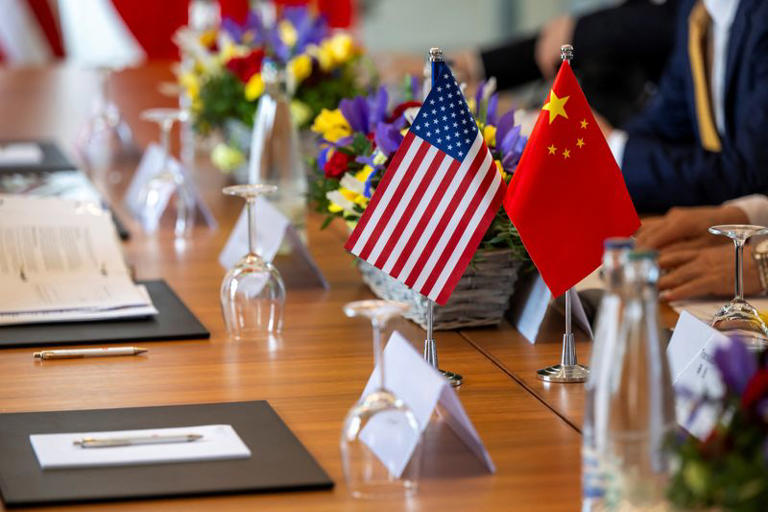Senior economic delegates from the United States and China convened in Stockholm on July 28–29, entering a decisive stage in negotiations aimed at extending the existing tariff truce.
The closed-door discussions focused on averting a return to punitive tariffs before the August 12 deadline.
Who Attends United States and China Talks in Stockholm?
Leading the U.S. team was Treasury Secretary Scott Bessent, accompanied by Trade Representative Jamieson Greer.
China’s delegation was led by Vice Premier He Lifeng.
Their overarching goal: negotiate a 90-day extension of the tariff ceasefire implemented in May, and prevent renewed disruption to global supply chains.
Broader Agenda & Strategic Factors
While avoiding immediate breakthroughs on broader issues, the dialogue touched upon access to critical imports—such as rare earth minerals.
Alongside geopolitical concerns, including China’s trade in oil from Russia and Iran, and limits on U.S. export of high-tech goods such as AI chips.
Global Ramifications
Failure to extend the ceasefire could trigger a rollback to tariffs soaring as high as 145%, leading to intensified trade barriers and renewed market instability.
Observers noted that financial markets responded positively to the resumption of the United States and China talks, keen to avoid renewed trade conflict between the world’s two economic superpowers.
What Lies Ahead: Trump–Xi Summit?
Though unlikely at this stage, some analysts suggest these talks could pave the way for a long-anticipated meeting between President Trump and President Xi Jinping in late 2025—possibly coinciding with China’s efforts to ease tensions through partial export policy relaxations.
Negotiators Are Racing Against the Clock
Stockholm meetings represent a vital effort to prevent a resumption of trade hostilities between the United States and China.
With tariffs set to escalate unless the agreement is extended, negotiators are racing against the clock.
Even if substantive economic reforms remain unresolved, the extension of the temporary ceasefire could stabilize global markets—and buy more time for deeper dialogue.
Read also:








